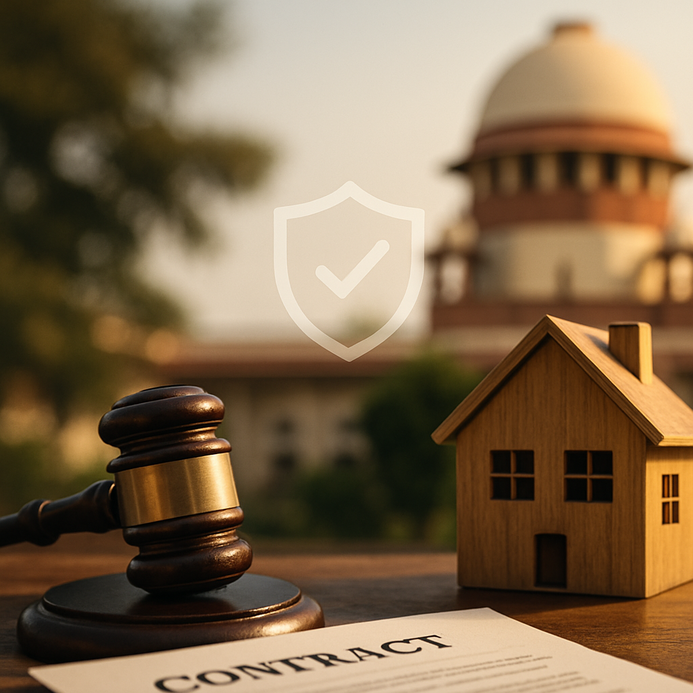How To Obtain Certified Copies Of Lost Property Documents In Telangana
- 1 Introduction: Understanding the Importance of Property Documents
- 2 Step 1: Filing an FIR for Lost or Damaged Property Documents
- 3 Step 2: Placing a Newspaper Advertisement
- 4 Step 3: Preparing a Legal Affidavit on Stamp Paper
- 5 Step 4: Applying for a Certified Copy at the Sub-Registrar’s Office (SRO)
- 6 Conclusion: Ensuring the Safety of Your Property Documents
- 7 FAQ
Introduction: Understanding the Importance of Property Documents
Property documents in Telangana? They’re a big deal! If you’re looking to dive into real estate, you gotta have your paperwork in order. These documents prove you own the property, and they define your rights – buying, selling, or even leasing. Forgetting to sort this out can lead to disputes, and trust me, no one wants legal headaches or losing money over a mishap.
What does a complete property documents list look like? Well, think sale deeds, title deeds, and encumbrance certificates. The originals are a must, particularly if you’re tapping into loans against your property. Banks usually want to see things like the original title deed, proof of identity, and property tax receipts.
Here’s a handy table to break it down:
| Document | Significance |
| Sale Deed | Confirms who sold the property legally. |
| Title Deed | Shows who really owns the property. |
| Encumbrance Certificate | Lets you know the property is clear of legal issues. |
| Property Tax Receipts | Proof you’ve been paying taxes on the property. |
| Loan Application Documents | Needed to secure that loan against your property. |
Understanding all this? It’s not just smart, it’s essential. If you wanna avoid being blindsided by legal issues later, check every document off your list. And hey, if you want to learn more, swing by the Property Documents Definition.
Sorting your property documents is like putting a lock on your investment. Really, doing all of this upfront can save you so much hassle down the road. Want more tips on navigating property? Look into some resources about real estate practices in Hyderabad.
Unveil the 50-50 payment plan
Step 1: Filing an FIR for Lost or Damaged Property Documents
So, you’ve lost your property documents or somehow managed to damage them? First things first: you need to file a First Information Report (FIR) at your local police station. It sounds formal, but really, it’s just to help you out and prevent any misuse of those documents. Here’s how you get it done.
Necessary Documents for FIR
Before you head out, make sure you’ve got these:
1. A valid ID (could be your Aadhaar or PAN).
2. Proof that you own the property (like the original documents).
3. Details about the property (location, kind, etc.).
4. If there’s been a previous FIR about similar issues, bring that along too.
FIR Application Format
When writing the FIR, here’s a quick format you can follow:
– Your full name and address.
– Date when you’re filing it.
– A clear statement about what you lost or damaged.
– Time and location where it happened.
– Any suspects or theft details (if they apply).
Check this template out:
To,
The Officer In-Charge,
[Police Station Name],
[Address]
Subject: FIR for Lost/Damaged Property Documents
Respected Sir/Madam,
I’m here to file an FIR concerning my lost/damaged property documents related to [property details].
[Explain briefly how it happened]
Thanks for your help!
Yours sincerely,
[Your Name]
[Your Contact Number]
Tips for Effective Filing
1. Keep It Clear: Be specific but don’t ramble on.
2. Follow Up: Always ask for a copy of the FIR when you file it.
3. Get Acknowledgment: This is your proof that you reported the loss.
Filing that FIR helps you later when you ask for certified copies. Plus, if you’re looking at loans against your property, the FIR copy might just be on that checklist. Sounds tedious? Just keep your property documents list handy to avoid hassle when loan approval time comes!
If you want to dig deeper into property document essentials, check out Law Insider or browse through Cadastre. And if you’re lost on loan processes, have a peek at our guide on Loan Against Property.
Step 2: Placing a Newspaper Advertisement
Lost or damaged property documents? Don’t forget to place a newspaper ad to publicly announce their loss. It’s not just a formality; it’s essential for legal reasons and can help you fend off any fraud.
Crafting Your Advertisement
1. What to Include: Be clear about what you lost, mention the specific documents, like title deeds or encumbrance certificates. Also, drop your name, contact info, and a note about any claims on those docs.
2. Format: Keep it short and sweet. It usually looks like this:
– Title: “Lost Property Documents”
– Description: A quick summary of what’s lost.
– Contact Information: A way for folks to reach you.
Choosing the Right Publication
Pick a newspaper that folks around you read. Here are a couple of tips:
– Circulation: Go for local dailies with a good reach in Telangana.
– Cost: Check out rates in different newspapers; smaller ones might save you a few bucks, but a wider reach can be worth it.
Example Advertisement
| Title | Sample Text |
|---|---|
| Lost Property Documents | “I, [Your Name], declare the loss of my property documents, including (specify types, e.g., Title Deed, Encumbrance Certificate). If found, please contact me at [Your Phone Number].” |
Once it’s published, hang onto a copy. You might need it for the next steps, like reissuing those elusive documents.
And hey, after you publish the ad, keep chatting with local authorities to get things moving.
Step 3: Preparing a Legal Affidavit on Stamp Paper
To make it all legit after losing your documents in Telangana, you’ll need a legal affidavit on stamp paper. Here’s the lowdown on getting that done.
1. Choose the Right Stamp Paper
First off, get your stamp paper according to local rules. In Telangana, you may start at ₹20 for an affidavit. Just check local regulations for specifics.
2. Drafting the Content
You’ll want to include key info, like:
– Your Name: Full name, of course.
– Statement of Loss: Clearly say what documents are lost or damaged.
– Property Details: Location, type, and maybe any registration number.
– Signature: Yours, with the date!
3. Including Witness Information
You might want a witness. Just jot down their name, address, and ID info. They’ll back up your statements.
4. Notarization
Get the affidavit notarized. It’s like that cherry on top, makes it credible. Make sure the notary public stamps it.
5. Filing the Affidavit
Take your notarized affidavit and supporting documents to the sub-registrar office. And don’t forget copies for yourself.
To dig further into the importance of legal documents, check this page on Property Abstract.
Follow this advice, and you’ll protect your property rights while making it easier to get loans against those documents if needed. Want more on property handling? Look for guides on managing those real estate papers.
Step 4: Applying for a Certified Copy at the Sub-Registrar’s Office (SRO)
When you need a certified copy of those lost or damaged property documents, you’ll have to hit up the Sub-Registrar’s Office (SRO). Here’s a rundown for you.
Documents Required
To apply for your certified copy, gather these docs:
– Application Form: Fill it out at the SRO.
– Identity Proof: Your photo ID, Aadhaar or passport works.
– Proof of Ownership: Original documents, if you’ve got them, or any old registration details.
– Affidavit: That notarized affidavit stating the loss.
– Fee Receipt: Proof of payment for whatever fees are required.
Fees and Charges
The fee differs based on what kind of property you’re dealing with. Here’s a quick sample:
| Property Type | Fee (INR) |
| Residential Property | 500 |
| Commercial Property | 1,000 |
| Agricultural Land | 800 |
Application Process
1. Go to the SRO: Find the SRO where your property’s registered.
2. Submit Documents: Hand over your docs and form to the staff there.
3. Payment: Pay whatever’s needed and don’t forget the receipt.
4. Processing Time: It might take a few days to get everything processed.
Tips for SRO Interaction
– Be Respectful: Always be kind and polite; officials are just doing their jobs.
– Follow Up: When in doubt, tap them for updates if you’re left waiting.
– Document Everything: Keep notes on all your visits, with dates and names.
For more on property processes, swing by The New York City Department of Finance. This ensures you get those certified copies you need for transactions, especially for that loan against property you might be eyeing. Need tips on property ownership? Check our articles on investment strategies and ways to avoid common pitfalls.
Conclusion: Ensuring the Safety of Your Property Documents
Keeping your property documents secure? It’s crucial if you wanna protect your investments and make transactions smooth. A proactive approach can save you from potential future headaches tied to lost or damaged documents.
First off, think about where to store originals, maybe in a home safe or surrender them to a bank safety deposit box. It cuts down the risk of theft or damage. Make a complete property documents list too, this includes deeds, tax records, and loan agreements. It keeps you organized!
Thinking ahead? Digital copies can act as backups. Just use cloud services that offer encryption; it’s crucial for security. Plus, updating your property insurance might be wise, coverage for lost documents can be a game-changer.
Educate your family on why these documents matter and where you keep them. Should anything happen, knowing how to get certified copies of your lost or damaged papers in Telangana can save you a ton of time and stress.
It’s also worth consulting pros like real estate attorneys or financial advisors regarding your loan against property documents. They know their stuff and can guide you efficiently.
For further insights into property documentation, hit the links for Title Search and Cadastre.
To see what else might be useful, check our other reads like the Home Information Pack and info on the loan against property documents. Take these steps, and you’ll be well on your way to keeping your property documents safe and accessible when it counts!
FAQ
What should I do if I lose my property documents?
First, file an FIR at your local police station, then place a newspaper advertisement announcing the loss, and prepare a legal affidavit.
How can I get a certified copy of my property documents?
You will need to visit your local Sub-Registrar’s Office with the required documents and application form to obtain a certified copy.
Why are property documents important?
They prove ownership, define rights, and are often required when selling, leasing, or applying for loans against property.
How can I protect my property documents?
Keep them in a safe place, consider digital backups, and ensure they are insured against loss or damage.
What is an encumbrance certificate?
An encumbrance certificate is a document that guarantees your property is free from any legal liabilities or claims.













